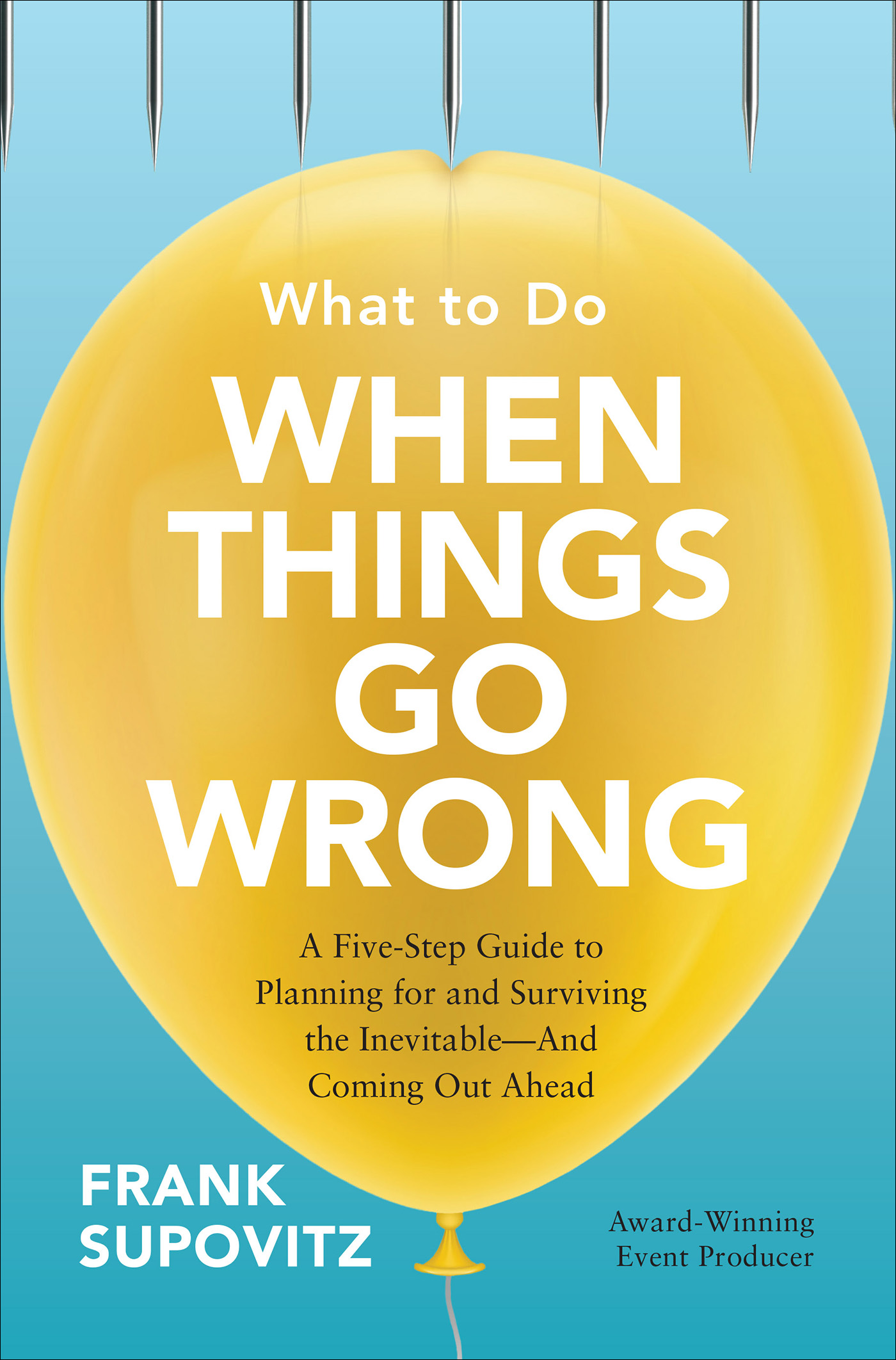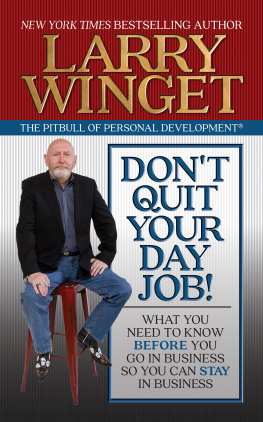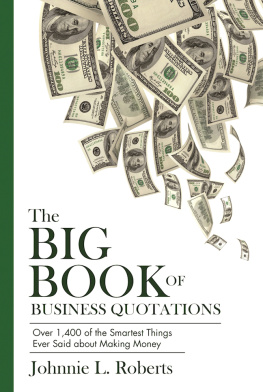Contents
Guide
Page List

Praise for
WHAT TO DO
WHEN THINGS
GO WRONG
Most people that watch the Super Bowl are only aware of the spectacle that kicks off at 6:30 PM EST the first Sunday in February. As former chairmen of the Super Bowl XLVII Host Committee, we have some understanding of the complexity and logistical difficulties in putting on not only the game itself but also the host/owner parties, the halftime shows and the extensive infrastructure prep for each host city.
Together weve been through countless political campaigns (domestic and international), The White House and raising two daughters. Each had its unique challenges. We wish we wouldve had this book through it all. Its genuinely applicable for every conceivable crisis; how to manage them, but more importantly how to avoid them. Weve never seen anyone cooler under fire than Frank Supovitz. He has the ability to immediately adapt to his circumstances while instilling confidence in everyone working around him. Simply put, Frank Supovitz is the best and What to Do When Things Go Wrong should be required reading for all business leaders and college students who aspire to be.
James Carville and Mary Matalin, renowned political strategists and media personalities
In governing, managing major projects, and life, things will inevitably go wrong. Those best prepared for adjusting to the unexpected can not only recover but come out ahead. Very few people understand this better than Frank Supovitz. I watched firsthand how he handled major events like the Super Bowl and found this book to be a great entry point for people in business, event planning, or even politics. What to Do When Things Go Wrong is full of insight to help you in your own journey toward success.
Mitch Landrieu, Mayor, City of New Orleans (20102018)
Supovitzs breezy, personable, and often provocative storytelling style brings to life the more sobering and valuable lessons of avoiding and planning for crises, and then managing them when they happen anyway. What to Do When Things Go Wrong is a necessary read for anyone managing projects or people.
Paul Tagliabue, Commissioner, National Football League (1989-2006)
To you, Super Bowl Sunday may be a chance to gorge on guacamole. To Frank Supovitz, the Big Game is 1,327 disasters waiting to happen. In What to Do When Things Go Wrong, the NFLs former Super Bowl Czar takes you behind the scenes at the worlds biggest sporting event. You get to laugh at Franks stories, learn from his mistakes, and most of all, develop the planning and management skills that will help you keep your next looming disaster at bay.
Allen St. John, award-winning journalist and New York Times Best-selling author of Newtons Football and The Billion Dollar Game
What to Do When Things Go Wrong is a seminal training tool for mitigating risk. Supovitz takes readers on a roller coaster ride of both glamour and potential disaster with storytelling techniques and memorable scenes that everyone can relate to. Like a disaster happening before your eyes or a Lifetime romance movie, the book is gripping, keeping readers wanting to know whats next, as the relatable content draws out personal experiences, sentiments, and insecurities from the reader.
What to Do When Things Go Wrong could be one of the classic business books that everyone who has ever managed anything needs to read and digest. It is a business lifesaving manual.
David Adler, CEO and Founder, BizBash Media
Franks book provides a comprehensive treatment involving crisis management, with a strategic understanding of how to resolve unique and complex situations. In my years in the industry, I have never seen a treatment that focuses on all of these issues with an easy-to-understand and -implement message. It is a must have for those in business, and in the business.
Rick Horrow, author of The Sport Business Handbook:
Insights from 100+ Leaders Who Shaped 50 Years of the Industry, and Visiting Expert on Sports Business at Harvard Law School
Frank Supovitz has great experience in successfully managing massive projects that cater to expansive live audiences and are broadcast to the world stage. In his book, What to Do When Things Go Wrong, Frank draws from his experience to guide the reader on how to imagine, prepare, execute, respond, and evaluate challenging situations that do and will go wrong. His use of personal experiences, procedures, protocols, and outcomes offer actionable processes that everyone can use to avoid and deal with uncomfortable situations that will arise in their own personal lifetimes.
Brad Mayne, President & CEO, International Association of Venue Managers
When things inevitably go wrong at an event, no matter how big or small, there is no one Id rather have handle the response than Frank Supovitz. Thats because hes prepared for anything. What to Do When Things Go Wrong should be required reading for every project manager whether they are in the sports world or not and should be placed right alongside any planning document they hold dear. As Frank notes, communication is key in a crisis and trust is a common denominator in making a plan flow flawlessly. After reading What to Do When Things Go Wrong, your team will be able to communicate through any problem and come away with a plan to trust when inevitable problems arise.
Jason Gewirtz, Editor, SportsTravel magazine
What to Do When Things Go Wrong should be required reading for anyone in business, or life, looking for a roadmap on how to handle the evitable challenges we all face. Delivered in an entertaining and engaging manner, Frank Supovitz marries his incredible experiences leading some of the worlds biggest events with a truly impressive series of lessons that can make us all better. I highly recommend it!
Ed Horne, President, Endeavor Global Marketing
Most managers will never have a project with the number of variables that Frank Supovitz faced every year staging the Super Bowl for the NFL. The lessons he learned about planning, innovation, communication, time management, and preparing for every possible scenarioregardless how low the probabilityare here for professionals in any business, not just sports.
Dennis Deninger, Syracuse University sport management professor and author, Sports on Television: The How and Why Behind What You See
What to Do When Things Go Wrong is as practical, timely, and insightful for business professionals as it is for students who want to learn more about embracing unanticipated realities and dealing with unplanned outcomes. Supovitz provides readers with an inside look into event operations and crisis management at the NFL Super Bowl and leverages his professional experiences to offer readers countless practical and actionable strategies to manage and overcome the unexpected. The straightforward and witty tone makes What to Do When Things Go Wrong an easy-to-digest and essential read for project managers, event planners, and all college students.
Scott Bukstein, director, Undergraduate Sport Business Program, associate director, DeVos Graduate Sport Business Program, University of Central Florida, College of Business
Theres this adage which has come to be known as Murphys Law: anything that can go wrong will. It is as important for business leaders and project managers as it is for event planners in the sports and entertainment industry to keep this in mind. Following Franks recommendations, our industry now has a blueprint on how to handle these event crises, and professionals from any industry can similarly benefit from Franks real-life experiences and wisdom. Readers are getting a gift from the best in the business.








